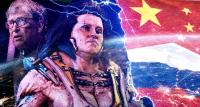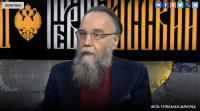Events in Palestine: the End is closer than ever
It is important to point out that not only the Israelis are massacring the Palestinians, but the rockets launched by Hamas are also reaching their targets. Israelis are also losing their lives.
The flare-up of the Arab-Israeli conflict once again resurrects a whole range of ominous apocalyptic plots. All three world monotheistic religions - Judaism, Christianity and Islam - agree that the end of the world will begin with a great war in the Holy Land. So the End is closer than ever.
The State of Israel itself is, in the eyes of religious Jews, a State of the End. The fourth diaspora (galut), which began with Titus' destruction of Jerusalem in 70, after which the Jews were scattered all over the world, ends only in the age of Moshiach.









